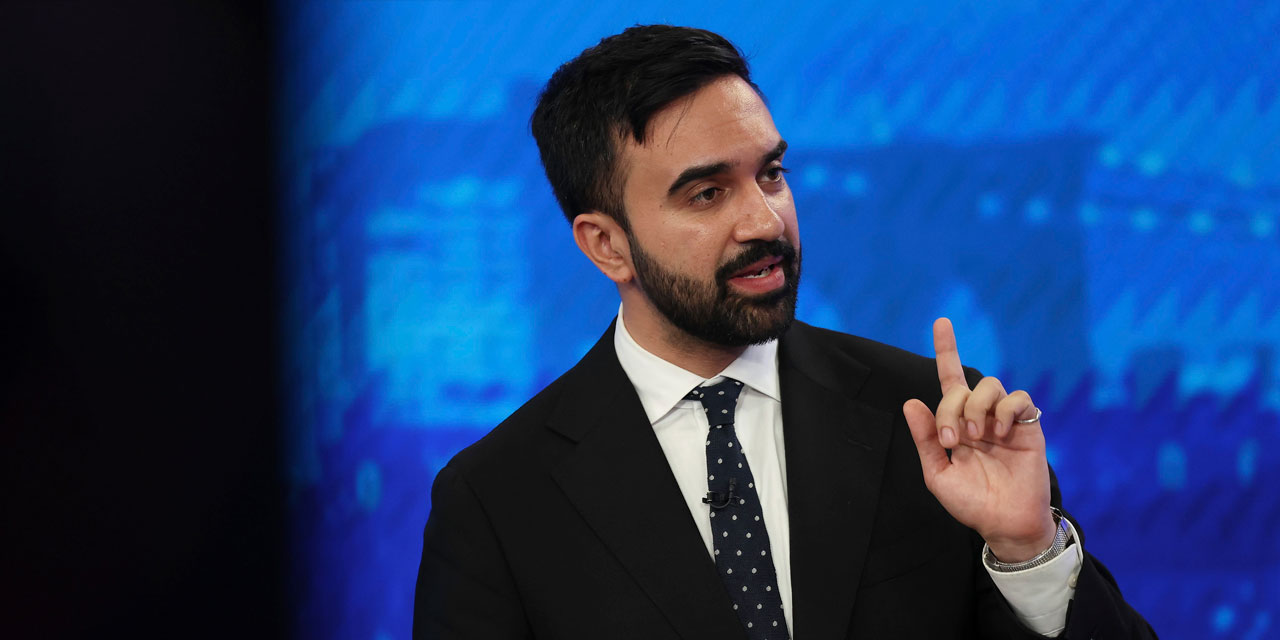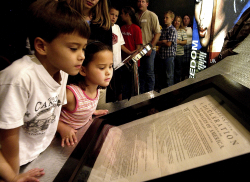
Last week, New York State Senator John Liu endorsed Zohran Mamdani in the Democratic primary for New York City mayor. Liu, who immigrated to the U.S. from Taiwan at age five, became the first Asian American elected to the New York City Council in 2002, the first Asian American elected to citywide office as comptroller in 2010, and one of the first two Asian Americans elected to the State Senate in 2019. Asian New Yorkers have long admired him as a “political trailblazer.”
Among these admirers is Mamdani himself, a Uganda-born Indian American. “He has been fighting for progressive public policy and for bringing outer borough immigrants into the heart of our city’s politics,” said Mamdani of Liu in an interview with Gothamist.
Finally, a reason to check your email.
Sign up for our free newsletter today.
Liu’s endorsement is central, moreover, to Mamdani’s emerging campaign strategy: play to the city’s South and East Asian residents to make up the margin between himself and front-runner Andrew Cuomo.
A May 28 poll from Emerson College found that, while Cuomo leads Mamdani in the first round of ranked-choice voting by 12.4 percentage points, his lead shrinks to 8.8 percentage points in the final-round ballot. In this head-to-head matchup, Cuomo draws most of his support from black (73.6 percent) and Hispanic (65 percent) voters, as opposed to Mamdani, who is the preferred candidate of whites (57.1 percent). The one racial group that seems to be up for grabs, according to the Emerson poll, is Asians, who are split evenly between the former governor (49.9 percent) and the democratic socialist (50.1 percent). A more recent survey, conducted by the left-wing pollster Data for Progress (DFP) on behalf of a Mamdani super PAC, found Mamdani leading Cuomo by 22 percentage points with Asian voters. This finding should be regarded skeptically, however. The number of Asians included in DFP’s poll was quite small, which means that the result for this subgroup has a high margin of error (a fact that DFP acknowledges on its website).
In any case, Liu’s endorsement could help narrow Cuomo’s lead. Not only is the state senator beloved by many Asian New Yorkers, but his district in northeast Queens is also the only majority-Asian district in the state (56 percent Asian) and home to the largest Chinese population in the city.
The Mamdani campaign likely believes that Liu’s endorsement will boost his appeal among East Asian voters. It’s probable that Mamdani’s existing Asian support comes mostly from the city’s South Asian groups, such as Bangladeshis, Indians, and Pakistanis. If one of Mamdani’s goals in the coming weeks is to expand his share of the Asian vote, then he needs to make inroads into the East Asian community.
We can assume that much of Mamdani’s Asian support comes from South Asians for a few reasons. Most obviously, the democratic socialist is himself South Asian, and he has engaged in heavy outreach to South Asian ethnic groups for years. In fact, in an August 2020 interview, he credited low-propensity South Asian voters with his election to the New York Assembly. “We spoke about issues that disproportionately impact our community,” Mamdani said, “such as the economic plight of taxi drivers—and did so in the languages of our homes, sending mailers in Urdu, Hindi, Nepali, Tibetan, Punjabi, Gujarati, and Bangla.”
Mamdani appears to be using a similar playbook this time around. On June 4, he released a campaign ad on X plainly directed toward South Asian New Yorkers. The ad, fully in Hindi, featured Indian grocery stores in Queens, cartoonish scenes from Bollywood movies, and plastic cups of mango lassi, which the 32-year-old used to explain ranked choice voting. (“Imagine these five glasses of lassi are candidates.”) On the same day, Mamdani released another ad directed at East Asian voters, in which he walks side-by-side with Liu, both men smiling.
Will Mamdani’s tactics actually bring a majority of East and South Asian voters into his electoral coalition? It depends.
If East Asian voters give greater weight to Mamdani’s policy ideas than to Liu’s endorsement, they will likely reject him. As I wrote in the aftermath of the 2024 presidential election, several East Asian enclaves in Brooklyn and Queens went for Donald Trump instead of Kamala Harris because residents had grown tired of the Democrats’ soft-on-crime policies and attacks on the city’s specialized high schools.
During Wednesday’s mayoral primary debate, Mamdani was the only leading candidate who did not pledge to expand the New York Police Department, calling instead for the creation of a “Department of Community Safety,” whose mental-health professionals would respond to 911 calls. And while Mamdani told Gothamist that he “has no plans” to change the Specialized High School Admissions Test (SHSAT), Chalkbeat reported the opposite in late May, noting that (despite being a graduate of Brooklyn Technical High School) he favored “an independent analysis of the specialized HS exam for gender and racial bias.” On May 31, City Council Member Susan Zhuang wrote an op-ed for the Brooklyn Daily Eagle arguing that Asian voters should support Cuomo over Mamdani strictly on policy grounds. Earlier this week, Yiatin Chu, president of the New York-based Asian American political club Asian Wave Alliance, announced that her organization had endorsed Cuomo for similar reasons.
The political calculus for South Asians seems to be different, depending more on voters’ ethnic-group membership than on policy. Broad racial categories like “South Asian” often do political scientists a disservice by obscuring important distinctions among various groups. While there are some similarities between Indians and Bangladeshis, for example, there are also many differences, such as those tied to religious belief.
These differences may end up proving politically salient. In response to Mamdani’s Hindi campaign ad, several Indian Americans noted that Mamdani has previously called Indian Prime Minister Narendra Modi a “war criminal” and shown prejudice toward Hindus. Yet, he’s been endorsed by Bangladeshi Americans for Political Progress, a “grassroots movement to create a Bangladeshi-American voting bloc in New York.” Will paying homage to mango lassi and being the son of an Academy-Award nominated Bollywood director (Mira Nair) be enough to get Indian New Yorkers to look past Mamdani’s offensive statements? I have my doubts, but we’ll see.
One thing we can be sure of is that Mamdani believes his path to the Democratic nomination runs through Jackson Heights and Flushing. Given that Asian Americans are the fastest-growing group of eligible voters in the country, he’s onto something there.
Photo by Yuki Iwamura-Pool/Getty Images
City Journal is a publication of the Manhattan Institute for Policy Research (MI), a leading free-market think tank. Are you interested in supporting the magazine? As a 501(c)(3) nonprofit, donations in support of MI and City Journal are fully tax-deductible as provided by law (EIN #13-2912529).
Source link















